Mi'kmaw lessons created by UPEI students to preserve language

Two students in UPEI's indigenous education program have created some new lessons in Mi'kmaw for the Native Council of Prince Edward Island to share with its members.
Chantal Peppin and James Omowumi spent 10 weeks with the Native Council as part of their teacher training.
"We've been working with the language and drumming program through the Native Council, which brings together people in all three counties or zones with Indigenous backgrounds," said Peppin.
"They teach them the Mi'kmaw language as well as cultural practices, including drumming and singing."
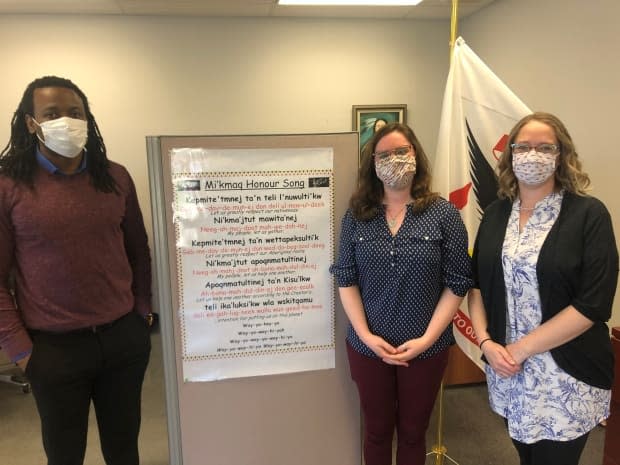
The UPEI students developed a poster to teach the Mi'kmaw Honour Song in the language and drumming program, including the Mi'kmaw lyrics, phonetics for the lyrics and the English translation.
"This song is sung at almost every Mi'kmaw gathering. It's a ceremonial song. It's also a song that provides great healing and it's a cultural practice, so it felt like the right song," Peppin said.
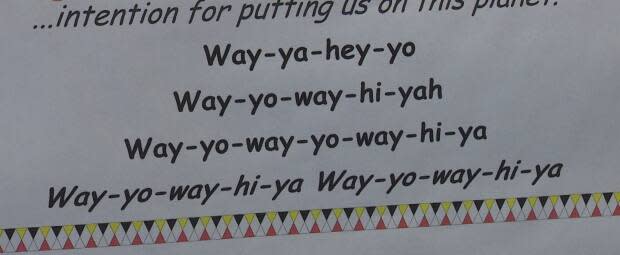
"[As] the most frequent song that we hear when we go to the language and drumming classes, it seemed like an automatic first choice to get to get that one put out so that it's accessible to everyone."
'A song of respect'
Katie Martin is the Sharing Our Stories co-ordinator for the Native Council of Prince Edward Island, and supervised the UPEI students during their practicum.
"It's a song that most of the community know, is sung at every gathering. It's a song of respect. It's a prayer," Martin said.
"It is sung at important events like funerals and so it was a obvious choice of where to start with writing down some of these songs, and to be able to share them with the community."
Peppin said having the English translation was also important.
"We wanted to make sure that we added the English translation, so that people knew right away what they were singing as they were saying the words, as well as the Mi'kmaw spelling," Peppin said.
"I do think that having it so clearly stated on these posters has really helped people get into the rhythm, and kind of follow along more easily."
The importance of language
The UPEI students also created a series of flash cards, featuring a Mi'kmaw word on one side and the English translation on the other.
"The experience has been amazing. I think the best part of the experience is getting hands-on experience, working with the members of the community, especially the elders," said James Omowumi.
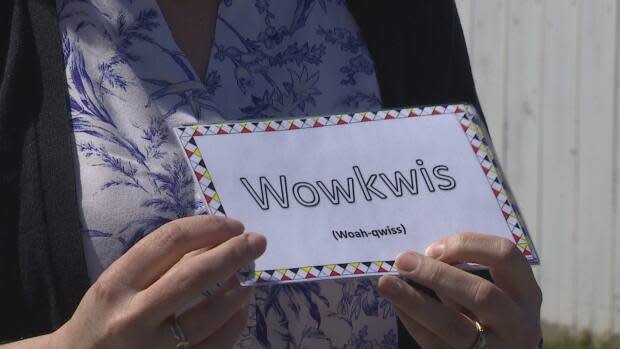
He calls the project "super-important, as it relates to helping save and make sure the language thrives…
"Keeping the language alive is a big passion of mine. If I'm able to take part in it in any way, shape or form, I feel fulfilled."
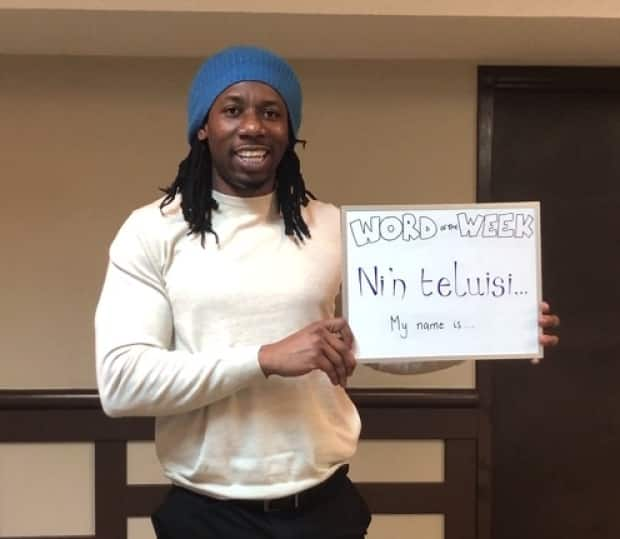
Omowumi said he will also take away a very personal lesson from his time working on the Mi'kmaw project.
"It's interesting because I'm a Canadian but I originally come from Nigeria, so there's some similarities in the way the language works," he said.
"It's a good experience for me, in the fact that it makes me understand the importance of language — especially my language — and helps me to understand the importance of transferring my language to my daughter too."
Future teachers
Peppin said she chose to study at UPEI because of the focus on Indigenous education, which made the placement at the Native Council so valuable.
"As a future teacher, I think it's incredibly important in Canada that teachers are aware of the realities for Indigenous students because whether we recognize it or not, most classrooms will have some connection to the Indigenous community," Peppin said.
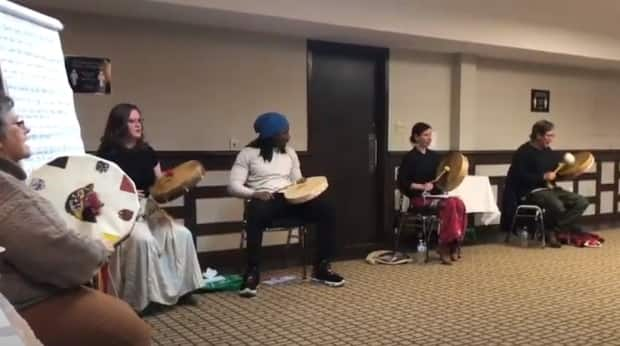
"Even if there isn't a student in the classroom, all of our classes take place on Indigenous land in Canada, and so teachers [need to be] aware of the realities of generational trauma, reconciliation, and what those mean — how tangible and real it is still. It's not history. It's still happening."
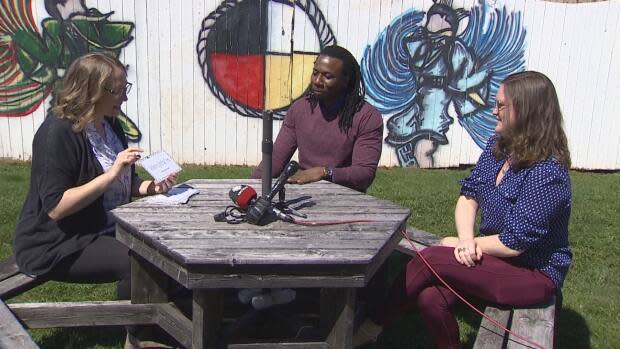
Martin said the Native Council would be open to hosting UPEI education students again.
"Absolutely, 100 per cent. Chantelle and James have been an absolute treasure to work with and I'm going to miss them next week when they graduate," Martin said.
More from CBC P.E.I.

